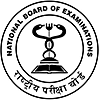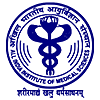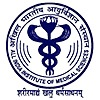Table of Contents
The MCAT 2023 syllabus covers first-semester undergraduate courses in a number of categories. The Medical College Admission Test (MCAT) is intended to assess a candidate's aptitude for problem-solving, critical thinking, and knowledge of the concepts and principles of natural, behavioral, and social science as they relate to the study of medicine. MCAT is a nationally recognized computer-based multiple-choice test. The MCAT conducting body evaluates an applicant's ability to think critically and intuitively.
MCAT Syllabus 2023
The MCAT Syllabus 2023 covers a wide range of first-semester undergraduate courses. MCAT Syllabus 2023 assesses a candidate's problem-solving, critical thinking, and knowledge of natural, behavioral, and social science concepts and principles.
The main Subjects and topics that are primarily covered in MCAT Syllabus 2023 are listed below.
Chemical and Physical Foundations of Biological Systems
This section contains the following categories of content.
- Kinetics and thermodynamic principles
- Nuclear decay and chemical behavior of atoms
- Function and structure of biological molecules
- Electrochemistry
- Work, energy, forces, and equilibrium in living systems
- Interaction of light and sound with matter
- Water: Nature and solutions
- The role of fluids in blood circulation and gas exchange
- The concept of purification
- Molecules and the interaction among them
Biological and Biochemical Foundations of Living Systems
This section includes the following content categories.
- Heredity and process of genetic diversity
- Nervous and endocrine systems
- Cell division
- Protein structures and amino acids as building blocks
- Prokaryotes and viruses: structure, physiology, and genetics
- Organ systems: functions and structure
- Bioenergetics and fuel metabolism
- The genetic transmission of information: gene to protein
- Cells/molecule assembly in single/multi-cell organisms
Psychological, Social, and Biological Foundations of Behavior
This section's content categories are as follows.
- Response to the world
- Demographic systems
- Causes of behavioral change
- The social line of thought and interactions
- Distinctive behaviors
- Social imbalance
- Environment sensing and understanding
- Effects of social activity on human behavior
- Identity & the concept of self
- Understanding of the social fabric
Critical Analysis and Reasoning Skills
Humanities passages can be drawn from a variety of fields, including
- Philosophy
- Literature
- Cultural Studies
- Art and Architecture
- Religion
- Ethics
- Pop Culture
Science passages can be drawn from a variety of fields, including.
- Psychology and Sociology
- Economics/History/Geography
- Linguistics
- Political Science
- Anthropology
- Archaeology
MCAT Section Wise Syllabus 2023
The MCAT syllabus 2023 consists of four primary test sections. The following MCAT syllabus 2023 four sections are mentioned below.
- Critical Analysis and Reasoning Skills
- Psychological, Social, and Biological Foundations of Behaviour
- Chemical and Physical Foundations of Biological Systems
- Biological and Biochemical Foundations of Living Systems
MCAT Section Wise Break-Up
MCAT Syllabus 2023 has the following sections covered and the MCAT section-wise distribution of questions, duration and number of questions are given below.
| Sections | Distribution of Questions | Duration | Questions |
| Chemical and Physical Foundations of Biological Systems | 10 passage-based sets of questions4–6 questions per set15 independent questions | 95 minutes | 59 |
| Optional Break | 10 minutes | ||
| Critical Analysis and Reasoning Skills | 9 passages5–7 questions per passage | 90 minutes | 53 |
| Optional Break | 30 minutes | ||
| Biological and Biochemical Foundations of Living Systems | 10 passage-based sets of questions4–6 questions per set15 independent questions | 95 minutes | 59 |
| Optional Break | 10 minutes | ||
| Psychological, Social, and Biological Foundations of Behavior | 10 passage-based sets of questions4–6 questions per set15 independent questions | 95 minutes | 59 |
MCAT Syllabus 2023 Sections and Scores
MCAT Syllabus 2023 Sections and Scores for the MCAT's four sections range from 118 to 132. A candidate's overall score ranges from 472 to 528. In the MCAT exam, candidates are not penalised for making guesses. Each section's score and percentile score are included in the MCAT 2023 results. Beginning in 2023, all percentile ranks and section scores for the previous three years will be updated.
The MCATSyllabus 2023 Sections and Scores details are given below.
| Section | Score |
| Psychological, Social, and Biological Foundations of Behavior | 118 to 132 |
| Biological and Biochemical Foundations of Living Systems | 118 to 132 |
| Critical Analysis and Reasoning Skills | 118 to 132 |
| Chemical and Physical Foundations of Biological Systems | 118 to 132 |
| Total | 472 to 528 |
FAQs on MCAT Syllabus
Q: What are the subjects in MCAT 2023 Exam?
Q: Does MCAT and NEET Syllabus have any similarity?
Q: Is the MCAT exam syllabus hard?
Q: How much time is required to prepare the MCAT 2023 Syllabus for the exam?
Q: Is the MCAT 2023 Syllabus Math hard?














